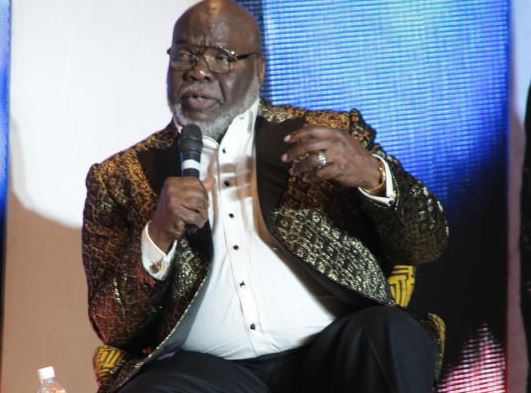
Born to a janitor dad and an educator mother 62 years ago, the little boy stood as much chance as any other black kid growing in a country that wasn’t fully out of the bowels of racial discrimination. His chances weren’t helped much by the fact that he spoke with a lisp. A lisp he seemingly outgrew judging from the booming and commanding voice that demands silence as he confidently addresses the press conference in Nairobi a few days ago. Little wonder he was chosen by President Barack Obama in 2009 to deliver the morning service before the historic Presidential Inauguration. Did I mention that he is also an author of 20 books and a Grammy-award winning gospel musician?